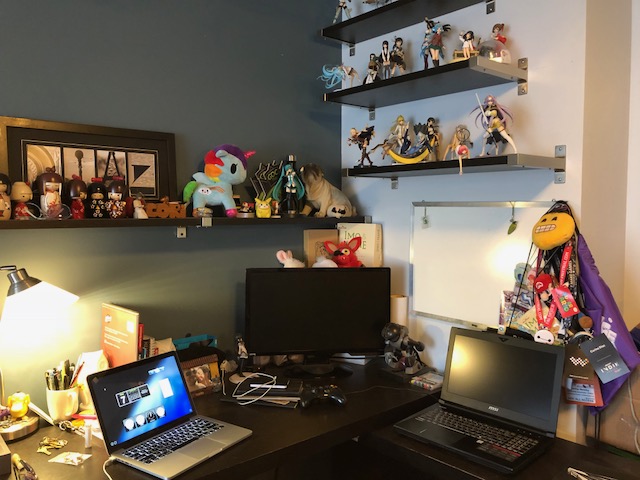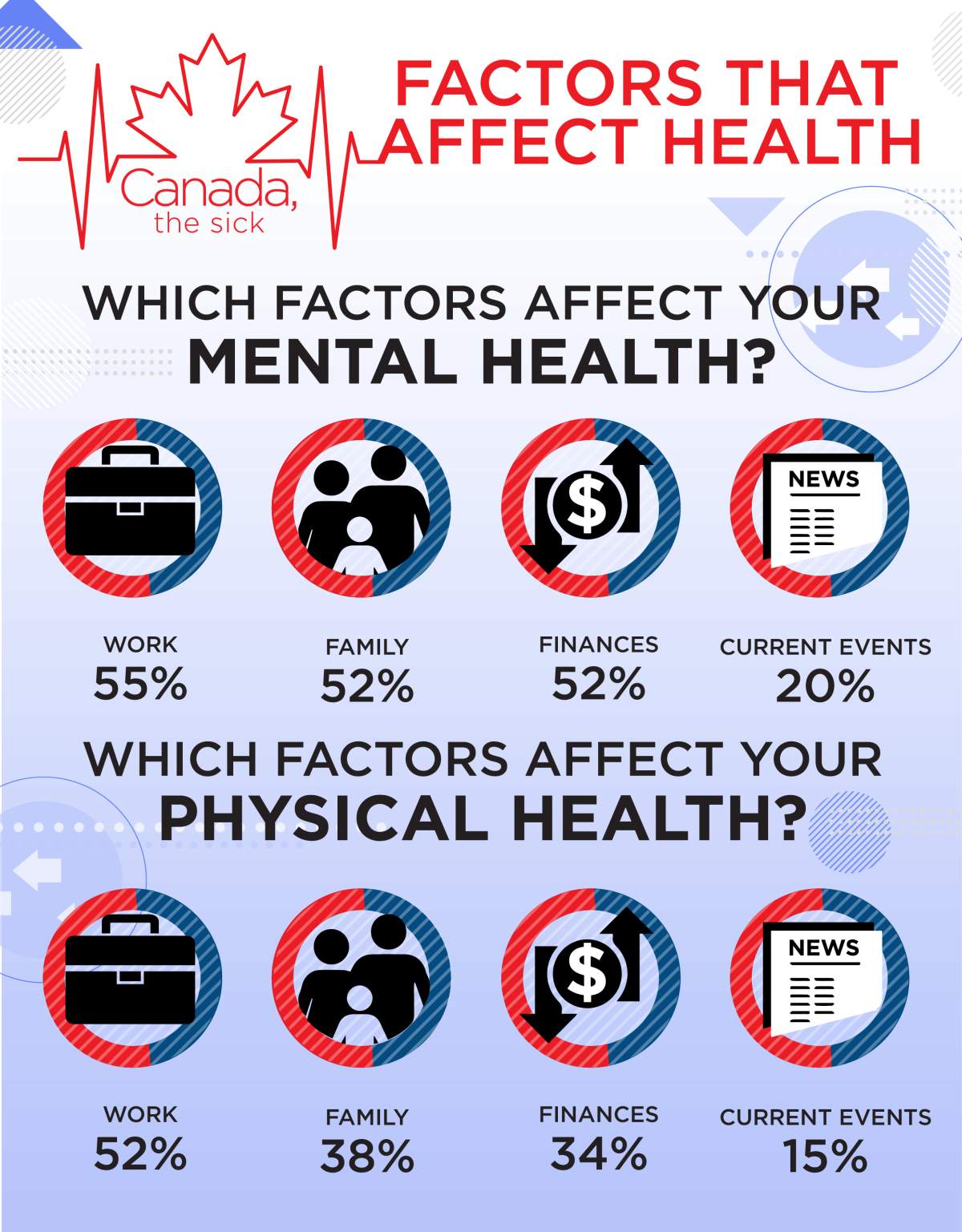Corina Diaz spent years working at a desk in an office, clocking in 9-to-5 hours like so many Canadians.

Diaz, who works in communications and digital marketing, would show up to work in the morning and stay until the evening. Then, the Toronto resident would slowly — painfully slowly, as she remembers it — make her way home on public transit.
“Everything was very rigid,” Diaz recalled in an interview with Global News, explaining there was a perception that traditional work hours were the best hours to work.
Corina Diaz in a supplied photo.
But as social media gained popularity, those hours ballooned and lines between work and time off blurred.
Eventually, the daily grind began to weigh on her mental health. The expectations to be at the office early each morning, even when she had stayed up at night to finish work, didn’t make sense.
“The office experience was really draining for me, in terms of being tired from my commute, and all the typical complaints of working in an office.”
For ages, the 9-to-5 grind has been deemed reliable, consistent and above all — safe. Working in factories could be dangerous. Farm work was physically gruelling. Office work was just fine. But Ed Mantler, who works with the Mental Health Commission of Canada, noted that it’s not so simple. Working a desk job poses its own risks — and we need to stop pretending like it doesn’t.
“There are some professions or workplaces that are perhaps more prone to mental health problems,” Mantler explained. Some of those problematic professions include first responders and health-care providers.
“But mental health, mental wellness is an issue in every workplace,” he said.
READ MORE: PTSD, suicide and first responders — A lot of talk, and not much progress
At a time when there’s never been more information about how to live a healthy lifestyle, Canadian obesity rates are twice as high as they were in the 1970s and Canadians are also increasingly suffering from chronic diseases like hypertension and diabetes. With the Canada the Sick project, Global News is looking at what’s going on, and why knowledge isn’t enough.
A survey conducted by Ipsos on behalf of Global News found that Canadians pointed to work as the biggest factor affecting their health, over other areas such as family, finances and current events.
Fifty-five per cent of working Canadians said their job has an impact on their mental health. About 52 per cent said it impacts their physical health.
For Diaz, the solution was finding a more flexible work environment — her own home. She switched gears and began to work out of a home office, occasionally going onsite to other companies and meeting with clients outside.
“It makes my day more valuable in terms of efficiency and efficacy, both for myself and for the people I was working with. I enjoyed my time in offices more, ironically, by having less of it.”
Eventually, she began moving toward working largely from home.

Get weekly health news
“Once you get a taste of that, you never want to go back to a full-time office job,” she said.

This is Corina Diaz’s home office.
Looking back, Diaz says talking to her employers about the mental health impacts of her job was difficult. She mentioned how gruelling her commute was because that seemed less personal.
But there were other things, like long hours and lack of sleep causing burnout, which she didn’t bring up.
“Ten years ago, when I first entered the marketing and communication workforce, I would never have gone to my bosses. I’m young, I’m inexperienced, there are other people who won’t complain.”
Talking about mental health concerns specifically related to work is difficult for many Canadians.
Just over half of working Canadians, at 54 per cent, said they feel comfortable bringing up such conversations with their employer. Slightly less than half, 48 per cent, said they were comfortable talking about mental health struggles in general.
It’s easy to say we should all talk about mental health, but it’s another thing to really break down the barriers that keep people from opening up.
Mantler broke down why talking about mental health can be so hard, especially within a workplace.
For starters, a lot of people dealing with mental health difficulties may not realize where the problem is stemming from.
“People may feel like there’s something wrong, but they don’t recognize what it is or they can’t put it into words,” Mantler said.
He noted that others may have the words, but their workplace may not feel like a safe space to voice concerns.
“There’s stigma and discrimination in the workplace that’s definitely a barrier. It may not be a culture where mental health is recognized,” he said, explaining there are still supervisors who may view mental health problems as poor work performance.
READ MORE: Sitting all day at work? Get up every 30 minutes to cut your risk of death
Breaking down these barriers can be as simple as a supervisor asking, “Are you OK? What can I do to help?”
But beyond that, Mantler says workplaces need to take initiative by incorporating mental health awareness into their culture, training all employees on how to recognize and handle mental-health issues. He points to the Mental Health Commission of Canada’s National Standard of Canada for Psychological Health and Safety in the Workplace, which offers pointers for employers looking to fix things.
Then there’s the physical health aspects of desk jobs — things that many Canadians say are easier to talk about.
The Ipsos poll found that 81 per cent of working Canadians said they feel comfortable discussing a work-related injury with their employer.
WATCH: Workouts for office workers

Physical ailments related to desk jobs are no secret, either. Countless studies have pointed to so-called “sitting disease,” which can lead to a myriad of health problems and even early death.
And yet, who takes heed of these warnings? Who gets up out of their chairs during a busy day at work to take a walk every 30 minutes like many studies suggest?
Iftikhar Mahmood, a 52-year-old financial planner based in Markham, Ont., actually did many of those things.
He spent hundreds of dollars on an ergonomically friendly chair and he was physically active outside of work. He still developed lower back pain in his late 40s.
READ MORE: Why too much sitting time increases risk of disease even if you exercise
“It was strictly because of constant sitting for many years, I basically developed this hip flexor issue,” he told Global News. “It was at the point where I’d get up in the morning and I’d have pain. It’s because you’re not moving those muscles the way they’re meant to be moved.”
“Those quick little stretches help for a few minutes, but it’s not really reversing the damage you’re doing,” Mahmood noted.
Now, Mahmood spends a lot more time using a standing desk along with a padded mat for his feet. He also has an adjustable monitor and keyboard.
“After 15 or 20 years, it’s hard to change those habits, but the fact that I’m seeing a difference has helped tremendously.”
Alishah Merchant, a Toronto-based physiotherapist, explained that those stretches or changes aren’t a one-step solution to problems that can arise from desk work.
“These are really general exercises so they apply to most people, but they are not applicable to everyone,” Merchant said.
WATCH: Mental health issues cost Canadian workplaces $50-billion a year

She noted that they are “preventative,” so they won’t solve an existing situation.
Merchant said that when it comes to health, there is no easy solution that fits everyone and that’s why people should consult their medical practitioners.
The physiotherapist added that essentially, it just comes down to making health a priority.
“It really doesn’t take long to do — we just get consumed in your work,” she said. “And we need to take the time.”
Exclusive Global News Ipsos polls are protected by copyright. The information and/or data may only be rebroadcast or republished with full and proper credit and attribution to “Global News Ipsos.”
This Ipsos poll on behalf of Global News was an online survey of 1,001 Canadians conducted between Aug. 20-23. The results were weighted to better reflect the composition of the adult Canadian population, according to census data. The precision of Ipsos online polls is measured using a credibility interval. In this case, the poll is considered accurate to within plus or minus 3.5 percentage points, 19 times out of 20.














Comments
Want to discuss? Please read our Commenting Policy first.